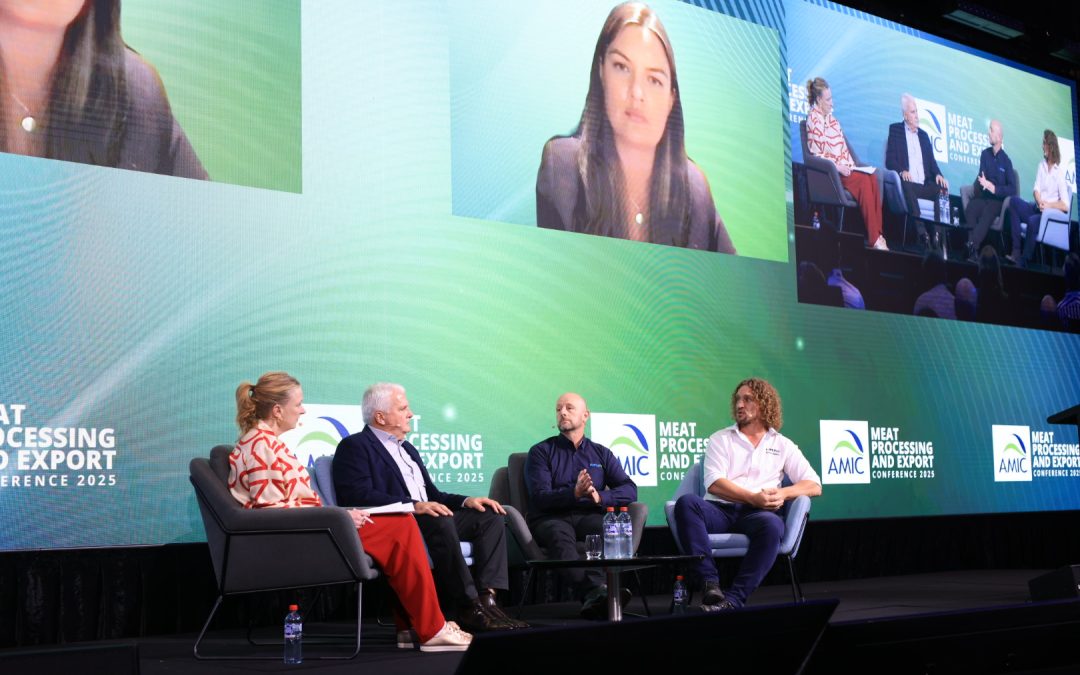THE red meat sector needs clear and consistent animal welfare regulations across the entire supply chain.
And constant improvement must underpin everything.
That was the message from a panel of animal welfare experts at the Meat Processing and Export (MPEC) on the Queensland Gold Coast.
Impetus Animal Welfare’s Dr Michael Patching said regulation clarity and consistency would reduce complexity and assist with increasing compliance.
“I think it is really important that we get harmonization, it’s probably the biggest thing,” he said. “Like the standards themselves are important, but just having harmonization, the same between state and national (regulations), between domestic and export abattoirs … so it’s really clear that’s what the minimum is. That’s my experience globally, as long as everybody knows what they have to comply with, everyone’s on the same playing field.”
Asked by MPPEC MC Leigh Sales to rate the 2025 animal welfare performance of the red meat and processing sector, RSPCA Australia Chief Executive Richard Mussell labelled the uptake of mandatory CCTV in the industry standards as a “big achievement” but said there was more improvement to come.
“We congratulate the industry, something that was easy for everyone but that is very important and a big move,” he said.
“Moving forward though and looking at things that are important from an animal welfare perspective…is the transparency around the industry, improving the industry regulation and legislation at a legal level above industry standards.”
Nolan Meats and Australian Meat Industry Council (AMIC) Director Terry Nolan said AMIC – working with all industry stakeholders – was well placed to “move the middle” of the industry when it came to animal welfare improvements but would need assistance for those on the “fringe” through consistent and clear regulations.
He also said all stakeholders in the animal welfare debate need to balance the needs of business and animal welfare.
Veterinarian and Animal Welfare Scientist Dr Sarah Bolton told the 350-strong MPEC crowd that self regulation was leading the Australian sector’s “bell curve” when it came to animal welfare and this was a positive for social license.
“So I think when we look back over the last decade or so in Australia we are definitely seeing more and more industry-led regulation for various experiences and that’s certainly not a bad thing when it comes to social license and trust from the public in agriculture,” she said.
“The idea that the public can look at the industry and say, ‘well I don’t understand what you do, I’m not an expert at what you do, so you should be the ones that hold yourselves to a certain level of operation’. That really speaks to the very meaning of the social licence to operate.”
-ENDS-
MEDIA CONTACT:
Jemma Harper
General Manager, Corporate Affairs, Australian Meat Industry Council
0429 040 128 / jharper@amic.org.au





